Kim’s Stage 4 Follicular Lymphoma Story
Kim shares her stage 4 follicular lymphoma story, from getting diagnosed with the indolent or slow-growing subtype of non-Hodgkin’s lymphoma through chemotherapy for 1 year and 2 additional years of rituximab infusions.
This mother and wife also describes how she navigated life after the cancer diagnosis, from what helped get her through the toughest mental hurdles, transitioning to survivorship, and the importance of seeking support from outside groups.
Check out Kim’s full story below, along with videos of our candid conversation!
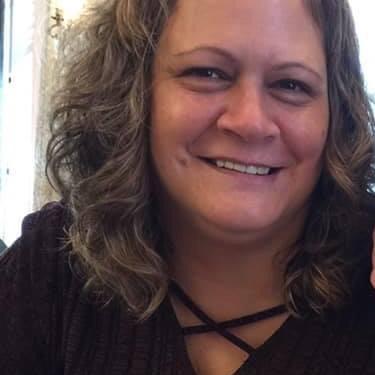
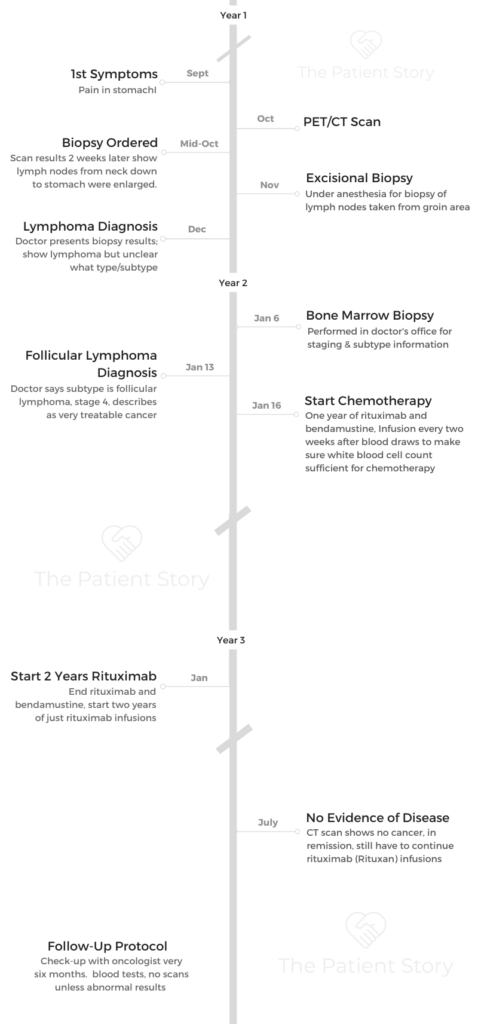
- Name: Kim S.
- Diagnosis (DX)
- Follicular lymphoma
- Slow-growing or indolent subtype of non-Hodgkin’s lymphoma, about 20-30% of all NHL diagnoses
- Stage 4
- Age at DX: 45 years old
- 1st Symptoms
- Fatigue
- Stomach pain
- Treatment
- Chemotherapy
- Rituximab (Rituxan) & bendamustine for one year
- 3- to 4-hour infusion every 2 weeks, along with the steroids
- Rituximab (Rituxan) only for 2 years
- Chemotherapy
- Kim's Story on Video
- Getting Diagnosed
- Tell us about yourself outside of cancer
- What were your first symptoms?
- What were the first diagnostic tests you underwent?
- Describe the excisional biopsy
- Did you feel any pain waking up from the biopsy?
- As you’re going through this, your mom was also dealing with cancer
- Next was the bone marrow biopsy
- How did you pass the few days it took to get the biopsy results?
- Official Follicular Lymphoma Diagnosis
- How did you get the full cancer diagnosis?
- Recount the moment you got the diagnosis
- How did you and your husband process the diagnosis?
- How did you break the news to your son?
- Any guidance to other parents on how to handle this topic with their kids?
- Did you consider a second opinion?
- How did your oncologist describe follicular lymphoma?
- The cancer diagnosis is still hard for you to process
- Chemotherapy & Side Effects
- Describe the port and the surgery
- How does it feel getting the needle in the port?
- Any tips on caring for the port?
- Describe the chemo schedule (Rituxan and bendamustine)
- How long were the infusions?
- What were the chemo side effects?
- Did you lose your hair?
- What helped you with the side effects?
- Describe the Neulasta shot and side effects
- Tracking Treatment Progress
- Describe the PET-CT scans
- How did you deal with the “scanxiety”?
- What were the results of the first scan?
- Even after no evidence of disease, you underwent another year-and-a-half of rituxan. Were there side effects?
- Describe the moment you learned you had no evidence of disease
- What was the follow-up schedule?
- Navigating Life with Cancer
- Describe the transition to survivorship
- What helped you through the mental hurdles?
- You also have a therapy dog
- How did the cancer impact your relationship with your husband?
- Any guidance for others on handling cancer with relationships?
- Taking care of the caregiver
- How did you manage dealing with cancer while parenting?
- Finding help and support from outside groups
- Last message for other patients and caregivers
- Follicular Lymphoma Stories
This interview has been edited for clarity. This is not medical advice. Please consult with your healthcare provider for treatment decisions.
Kim’s Story on Video
How I Got Diagnosed
Getting Through Chemo & Side Effects
Navigating Life with Cancer
Getting Diagnosed
Tell us about yourself outside of cancer
I love my family. I love spending time with them, and I’m a dog lover — definitely a dog lover — and somebody who tries to look at the bright side, no matter what you’re going through.
What were your first symptoms?
I was tired a lot, fatigued. I did question my doctor, my physician, a couple of times. I was telling him that I wasn’t feeling very well, and he just said it was just age at first. Then I started getting pain in my stomach.
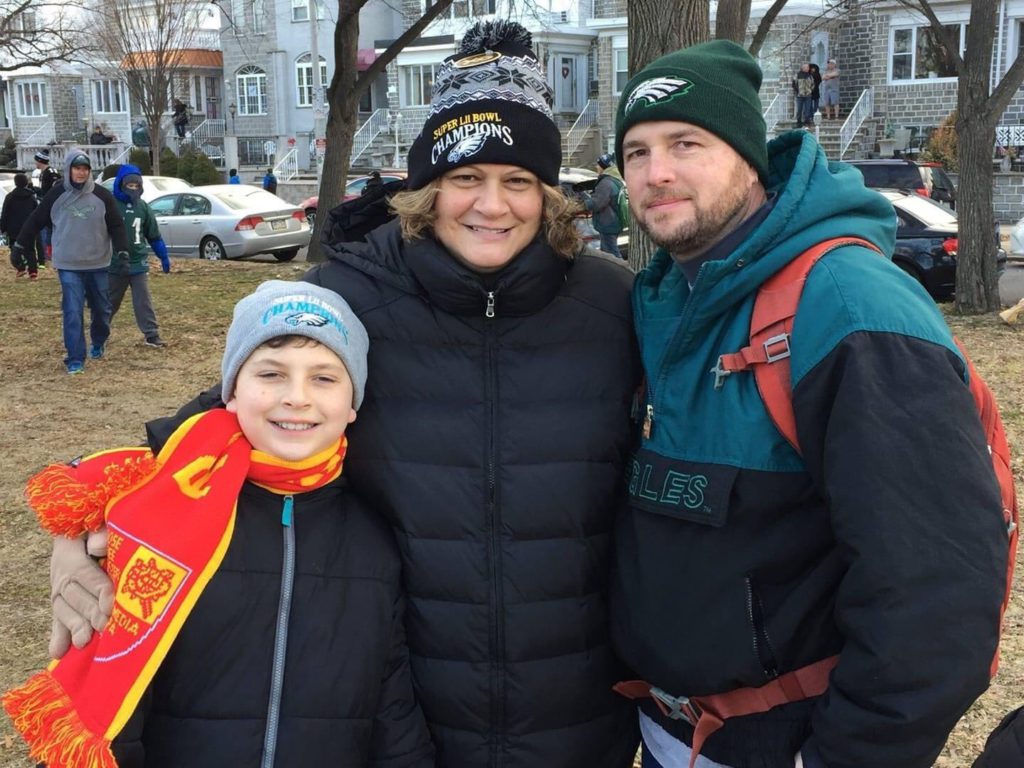
What were the first diagnostic tests you underwent?
They did a CT scan, and they saw that I had lymph nodes from my neck down to my stomach that were enlarged.
Describe the excisional biopsy
They took the biopsy from my groin area. That’s too much detail, but they took it from there. The doctor actually, when I woke up, told me that it looked okay. I really wasn’t worried at that time. We just waited for the results.
Did you feel any pain waking up from the biopsy?
No, it was an easy procedure. It was nothing major. It was comfortable.
As you’re going through this, your mom was also dealing with cancer
My mom had lung cancer. She was diagnosed, and she went through 6 months of chemo. It was a harsh chemo, but she died 6 months later. It was hard. It’s still hard.
Next was the bone marrow biopsy
Honestly, it did not hurt at all. I said to him, “Are you done? Did you do anything?” He’s like, “We’re done already,” and I’m like, “What?”
I didn’t feel anything. Nothing. It’s not bad. It’s not bad at all. I think I was more scared. It didn’t hurt.
I folded my legs in a fetal position, and he just took a piece of it out, then put it in a tube and then sent it off to the lab.
How did you pass the few days it took to get the biopsy results?
A lot of reading, a lot of walking. Even now I walk, and I love to clean. I just kept myself busy doing whatever I could do, spending time with my husband and my son just to keep my mind off it. We would go to the parks, go anywhere where I could just stay busy.
Official Follicular Lymphoma Diagnosis
How did you get the full cancer diagnosis?
My doctor actually called me, and he told me I had follicular lymphoma. He said it was stage 4. My stomach just dropped.
Of course, I cried. He said, “The good thing about this is it’s treatable.” He told me that follicular lymphoma is very treatable, and he said that I didn’t have to have a really strong chemo where I would lose my hair.
I lost patches, but I didn’t lose all my hair. He said because it’s indolent — it’s a slow-growing cancer — that the chemo that they would give me would be mild.
He told me that everything would be okay. They were good to me.
Recount the moment you got the diagnosis
I remember going into the office and sitting there waiting for the doctor to come in. The nurse came in. I really wasn’t present because we had just lost my mother.
I remember him coming in, and he told me that I had cancer, lymphoma. I was actually in shock. I don’t remember a lot after that.
How did you and your husband process the diagnosis?
It was shocking because I just wasn’t expecting it. It was the last thing anybody thought. It was because I was healthy. I was a healthy person. I took care of myself. I worked out, so it was shocking, definitely.
My husband didn’t know what to say. He was at a loss for words because I looked at him, and he didn’t know what to say to me. When we left there, we were in the car, and we were just really quiet. It was crazy.
»MORE: Patients share how they processed a cancer diagnosis
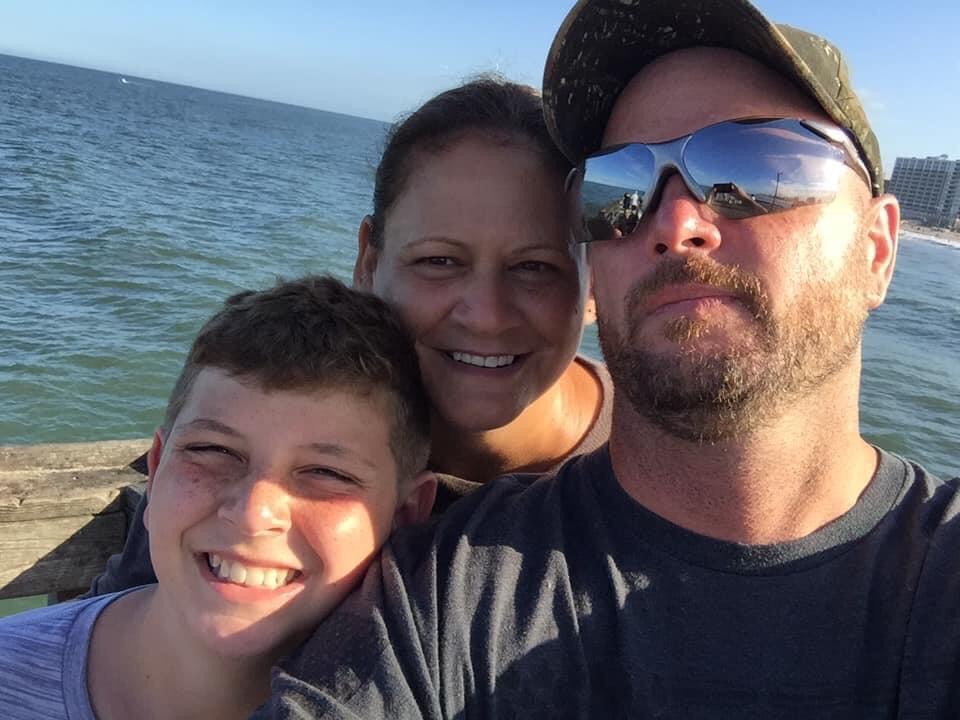
How did you break the news to your son?
We told him the day we found out because he was still mourning my mom, and we had to sit down and tell him that I had cancer.
He was upset, but we had to explain to him that it was a different kind of cancer that his grandmother had.
He was a little attached to me after that. He handled it pretty well. I was 45 when I got diagnosed, and he was 9.
Any guidance to other parents on how to handle this topic with their kids?
It’s a hard subject, but I want to be honest. I think kids are smarter than we think they are. They can handle things better than we do sometimes.
My son handled a lot of this better than I did it. He helped me out. He helped me get through all this. That’s what keeps you going. They’re smart kids.
It’s however you feel comfortable telling your child, but I’m going to say that they can handle it better than you’d think.
»MORE: Parents describe how they handled cancer with their kids
Did you consider a second opinion?
Honestly, I didn’t really think about it. I think I was still in shock, but when I met my doctor, I just knew that he was the right doctor. He was so good to me. He was so kind, and he explained everything to me, so no, I did not get a second opinion.
How did your oncologist describe follicular lymphoma?
He did tell me that it is treatable. It’s not curable. “We can put it in remission.” Really, we didn’t know what was going to happen, but we just went with the flow.
I’m sorry. It’s hard for me to talk about sometimes. He just said that it’s a treatable cancer, it’s not curable, you can put in remission, and sometimes it does come back and sometimes it doesn’t.
The cancer diagnosis is still hard for you to process
It’s trauma. It’s a trauma for me. I think it’s because it was so close to when I lost my mother. Her passing away from cancer, and then I got diagnosed with cancer, so I’ve gone through a trauma.
It’s something that is still shocking and hard to believe. It’s very emotional for me.
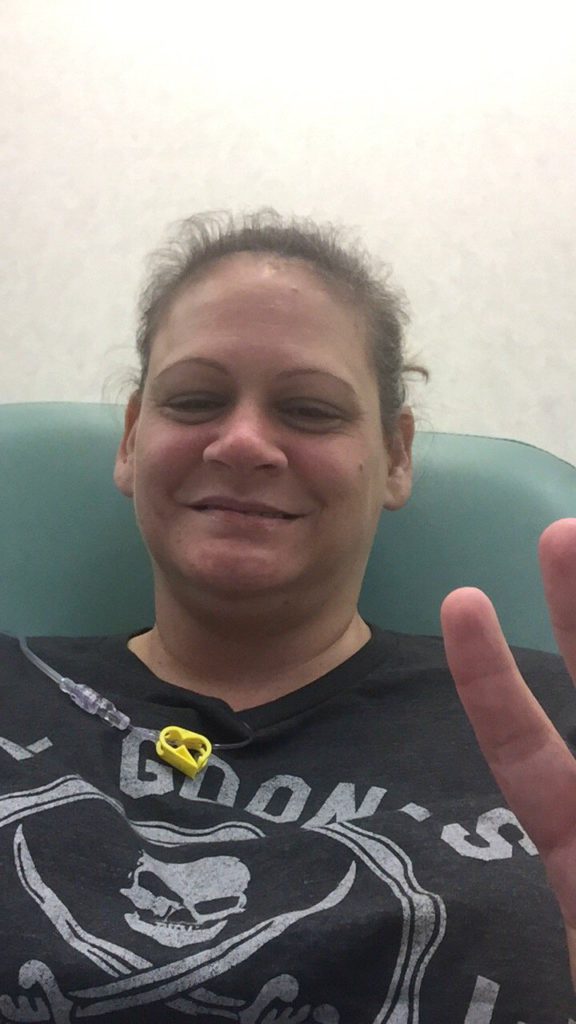
Chemotherapy & Side Effects
Treatment: One year of Rituxan and bendamustine, then 2 years of Rituxan
Describe the port and the surgery
The surgery wasn’t bad at all. I think I was more scared again. I had more anxiety because I didn’t know what to expect, but the surgeon was awesome.
The port itself made it so much easier as far as the chemo and blood, where they get the blood. It’s something that you should really think about.
It’s important. I think it’s better than getting stuck in the arm all the time. It just makes it so much easier. They just go in through the port.
Everything is through the port, and it wasn’t uncomfortable. I didn’t even know it was there half the time.
How does it feel getting the needle in the port?
Honestly, it’s not bad at all. I’d rather be poked there than in my arm. They use this stuff, it’s called cold spray. They sprayed me with that before they stuck in it.
It just feels like a little pinch, and then that’s it. That’s it. There’s no pain after that. There’s nothing. It’s not bad at all.
Any tips on caring for the port?
Everything was fine. I had no problems. It healed well. That’s what the doctor was telling me — keep an eye on it — but it healed without a problem. I healed up pretty good. I didn’t have a problem with the port at all.
Describe the chemo schedule (Rituxan and bendamustine)
I would go in, they would draw my blood, then I would go in the waiting room, and then the doctor would come in and tell me how my blood work was.
I was blessed that everything was good. Everything was smooth. All my blood work would come back good.
I was getting the chemo every 2 weeks, along with the steroids that they give you. Then for the white blood cell count, I also got Neulasta every 2 weeks. That was for a whole year.
I didn’t like it because it’s like an interruption. It’s something new. It’s something you don’t look forward to. I knew that once it was done, I’m like, “Ah,” but then I’m like, “Oh, 2 weeks later, I have to go back.”
It’s just something I wasn’t looking forward to because it becomes part of your life, and I didn’t want that part. I don’t think anybody does, but it just becomes part of your life for a while.
How long were the infusions?
They were 3 hours. The first treatment was almost 6 hours because I had a reaction to the Rituxan. I wound up getting hives, so they had to stop it. They waited a while, gave me Benadryl and restarted it.
Then I seemed to do fine. Every treatment after that was 3 to 4 hours.
What were the chemo side effects?
Summary: nausea, constipation, trouble sleeping, crave salty foods, skin felt hot, thrush
Honestly, the chemo itself was not bad. When I first got the first chemo treatment, I was sick. I was throwing up, and I had nausea.
I had thrush a lot. The thrush was very painful. I couldn’t eat sometimes. I had to eat a lot of liquidy foods. The thrush was like a white coating on my tongue.
If you ever ate Sour Patch Kids and you ate too many of them, you would get this white film on your tongue. That’s what it kind of reminds you of, and blistery. It’s very painful. Very painful.
The other side effects for me was not sleeping, and my skin was hot. It felt like it was on fire.
In all honesty, I craved something salty. I had to have salt. I would eat a lot of salsa and chips. I really didn’t have a lot of side effects as far as the chemo. Just not sleeping and salty foods.
The only other real side effect that I really had was from the steroids. I would be up all night. Also from Neupogen, the white blood cell count medicine that they gave me, I felt like I was hit by a Mack truck.
Did you lose your hair?
I lost patches of my hair. I didn’t lose my hair fully, but I did lose patches of my hair. I had really long hair, and I had to get it cut really short. I was blessed, yes.
What helped you with the side effects?
I took nausea medication. Because I was constipated, they told me to take Miralax. I would actually just take the Miralax, and I would take it a couple of days before my treatment because I knew it was coming. I would take it a couple of days before my treatment.
As long as I didn’t eat a lot of cheese or just stayed with the vegetables and the fruits, I would be okay. Sometimes, I would go a day or 2 without going, but then as long as I took the Miralax, eventually it would work.
For the thrush, they gave me the mouthwash, and that did help me a lot because I would get it in my throat and on my tongue.
There were cough drops. I wish I could remember the name of them. They were round, they started with C — I can’t remember, but they helped.
What happened was they numbed my tongue so I wouldn’t feel the pain. I think they were clotrimazole. They helped me a lot because it would numb my tongue besides the mouthwash.
Really, what was helpful with the thrush was just mainly the mouthwash and the lozenges. Lozenges help a lot. A lot. They numb your tongue. It’s still painful, but they numb your tongue for a while, so you’re like, “Some relief!”
I didn’t eat a lot of solid food, but your best bet is, if you get a lot of thrush, stick with the liquids. I forgot about the milkshakes. I drank a lot of milkshakes, too.
Describe the Neulasta shot and side effects
When I first went, it was the needle. Then, maybe a month later, she said, “Oh, we’ve got this new thing. It’s a timer. You stick it on your belly button.”
How did it make me feel? I would cry when I got my last treatment because I knew the next day I had to have the shot, and it was horrible. It made me feel like you couldn’t touch me — my head, my arms, nothing. It felt like I was hit by a truck. It was horrible, and nothing helped me.
I’ve even tried the medicine that they told me, Claritin, and it did not help me. I just had to go with the flow and wait for it to ease up, which took about 3 days.
Tracking Treatment Progress
Describe the PET-CT scans
I had a couple of scans. My first scan was 3 months after my first treatment. It was a PET-CT scan with contrast dye.
The only thing I hated about that was that you felt like you had to go to the bathroom. The heat, you just feel like you have to go to the bathroom, but that’s not bad at all. I don’t know how else to explain it.
It’s actually relaxing, kind of. I don’t know if that makes any sense, because you’re lying there and they’ll tell you to breathe, hold your breath.
The dye that went in, like I said, it’s just a little hot, and you feel like you’re going to pee yourself. Otherwise, I’ve never had a bad experience with the PET scan.
How did you deal with the “scanxiety”?
That was horrible! You’re always anxious. In my own experience, I have bad anxiety anyway with the waiting. I prayed a lot. I have a Mary statue, and every time I had to go to the doctor or I had to get tests done, I’d always hold her and pray.
It was a lot of anxiety. I prayed that the treatment was working and that I wouldn’t have to switch over to something else.
What were the results of the first scan?
It was good. My first scan, my oncologist said he was relieved. He said that because everything shrinked right away, which he was even more relieved about because he wasn’t sure how I was going to react to the chemo.
When he called, he said, “I’m so relieved that they’re starting to shrink, and we’re starting to see a difference in your scan compared to the first time.”
Even after no evidence of disease, you underwent another year-and-a-half of rituxan. Were there side effects?
The only side effect I had from Rituxan was that my immune system got beat up. I was catching everything, like if someone would come home with a cold, I would get the cold. It would last longer, my cold.
That’s basically the only bad. I just hated it. I didn’t like it, but I don’t think it was because it was the medication.
It was just something I hated. Nobody wants to go through that. Nobody.
I hate to say that because I was blessed to not have the side effects that I know a lot of people have had.
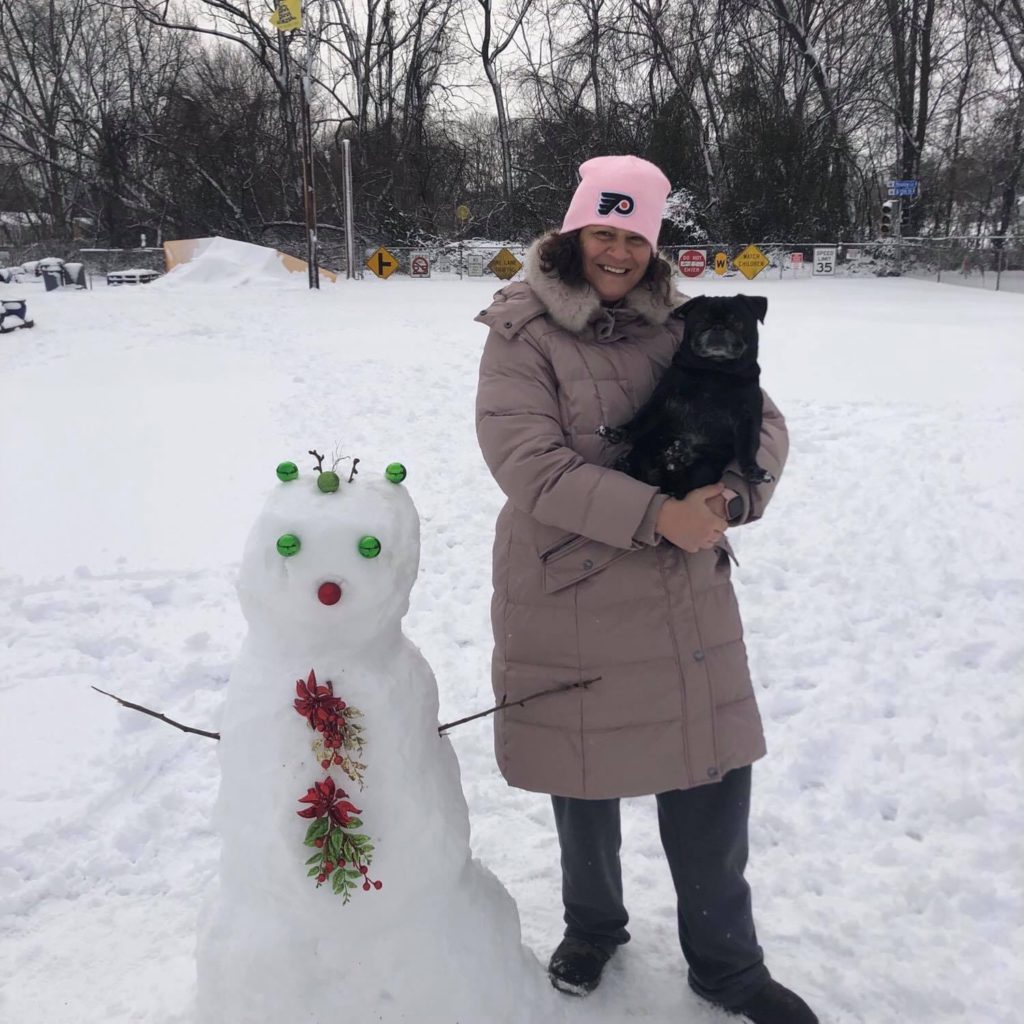
Describe the moment you learned you had no evidence of disease
I was in the office. My oncologist came in and told me that the cancer was gone. I didn’t like using the word “remission” because it was so new. I would say, “You mean no evidence?”
He would laugh at me because he would say, “Remission.” I was scared and happy at the same time. I was scared because I knew that I wouldn’t see them as often. Happy because I know that I was blessed.
I came home and gave my son the biggest hug I ever gave him. It’s hard to explain because you’re happy, but then you’re also scared at the same time. It was a relief, though. I just felt relieved a little bit.
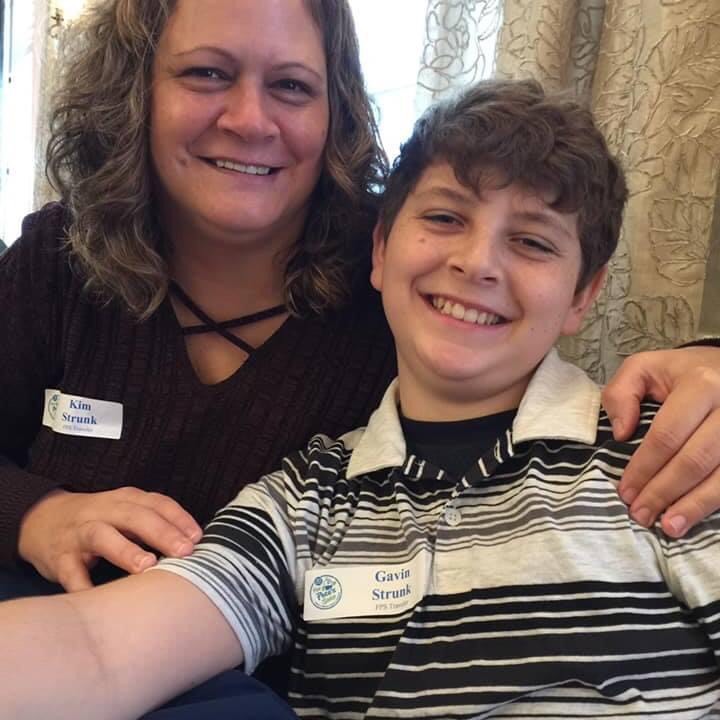
What was the follow-up schedule?
I would go back every 6 months. It’s still every 6 months. I get blood tests. My last CT scan was when he told me I was in remission.
My oncologist said unless I have any kind of lumps and/or my blood work comes back abnormal, then we would do a CT scan, but as of right now, it’s just every 6 months and just blood work.
So far, everything has been going really well!
Navigating Life with Cancer
Describe the transition to survivorship
I was excited, but I was scared at the same time. Because when you’re going to them every 2 weeks, you just feel comfortable because you know that they are watching everything.
They are looking at your blood work, and they are looking at your scans, so you know that you’re being taken care of.
You know that if there’s something there, it’s going to be seen. I knew that once the treatment ended, it’s not going to be like that anymore. It’s scary.
I don’t know how to explain it. I just felt comfortable going every 2 weeks, and now that I knew that it wasn’t, I was scared.
I’m like, “Oh my God, what if they missed something there because I’m only going every 6 months? What if I don’t realize that something’s going on?”
I was really scared. I didn’t know how to adjust to that. For 3 years, I was going to them every 2 weeks. You have to get used to a new normal, and I didn’t know how to do that. My life was changed forever. I did have a hard time adjusting.
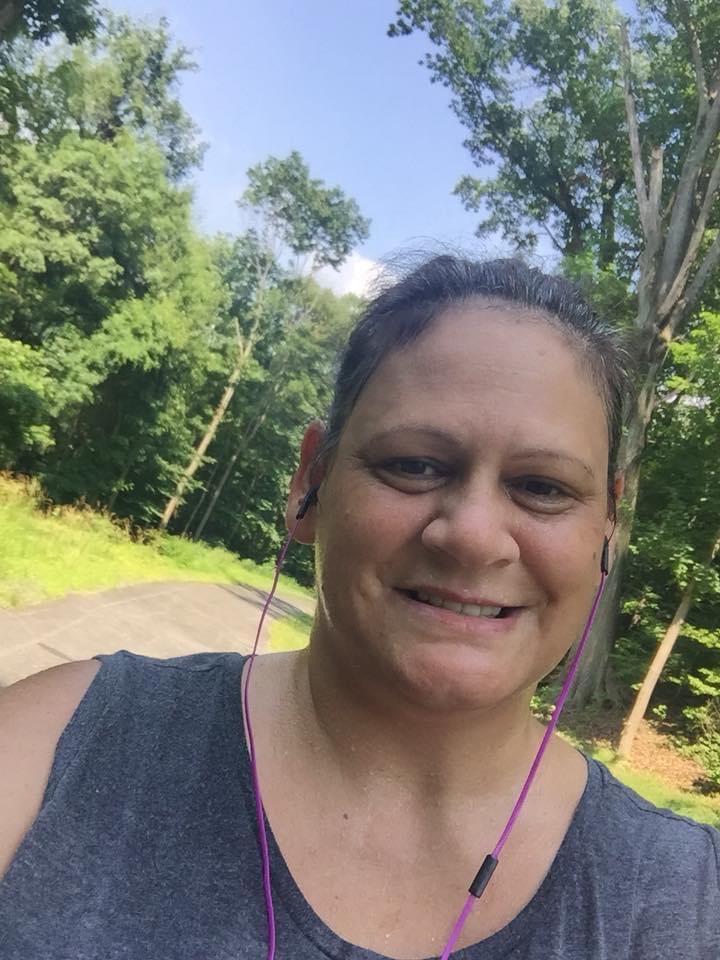
What helped you through the mental hurdles?
I was a mess for a while afterwards, mentally and physically. I didn’t want to do anything, I was depressed really badly.
I wound up going to see a therapist, and right now I’ve been seeing her for 2 years. Actually, it does help me. I also actually got into walking. I know I said I walked before, but I’m really walking now.
I do a lot of physical activity because it helps me keep my mind where it needs to be. Otherwise, the anxiety of recurrence is always there. Always there.
Therapy is the main thing, though. I love therapy. I can talk to her about anything, and she helps me try to adjust my brain to where it needs to be instead of going into that negative place because you can’t predict the future.
She’s trying to show me how I need to live for today, and it’s hard. Like I said, you’re going through that schedule for 3 years, somebody telling you pretty much what to do. It was an adjustment, but I’m working on it, and I’m getting better.
You also have a therapy dog
Percy! Actually, we got him about a year before I actually was diagnosed with cancer. Before my cancer, it’s like he knew something was going on, and he was always by my side. He would nap with me. He does everything with me.
Even now, if I’m having a bad day, he just knows. He just helps me. He’s a cuddler; he likes to cuddle. He just seems to sense when I’m having a bad day. He helps me get through a lot, that little dog. He’s like my side buddy.
How did the cancer impact your relationship with your husband?
I have to say that my husband was my rock and still is my rock. He took off 6 months off work to take care of me. I’m starting to get choked up.
His work allowed him to do that, and even now he goes to every appointment. He went to every chemo appointment.
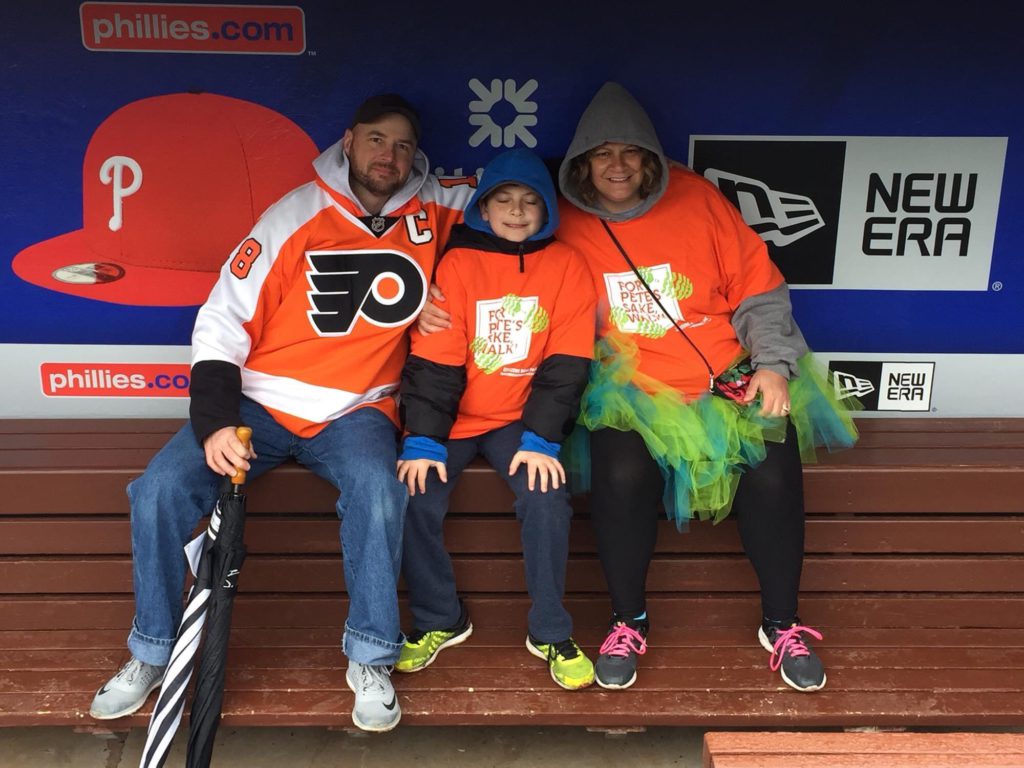
Any guidance for others on handling cancer with relationships?
You just have to be supportive. You don’t have to listen. Just be there. I think that’s important, too. A lot of times, he didn’t have to speak. He just knew what to do, and he still does.
I’m not a good advice giver, but the only thing I could say is to just be there. You don’t have to have words; it’s about support. More than anything, the support. Just your presence. That’s the most important thing. That was what was important to me.
»MORE: 3 Things To Remember If Your Spouse/Partner Is Diagnosed With Cancer
Taking care of the caregiver
Because my husband was so worried about me all the time, plus we have a son, I just told him, “You need to take better care of yourself.”
I was okay. I think he was more worried than anything, but they need to take care of themselves. It’s the most important thing because he was so worried about me that he neglected himself.
I told him I’m fine. As long as I was fine, I think that he was okay. He was just so worried about me.
How did you manage dealing with cancer while parenting?
My son was actually my rock. Raising him, he knew what he had to do. He just stepped up and did what he had to.
He knew what he had to do while I was going through treatments, and thank God I had his father to help. Gavin was more supportive. You would think he was the parent sometimes, and I was the child.
He’s such a strong kid. He just did what he had to do to help us all get through, really get through it.
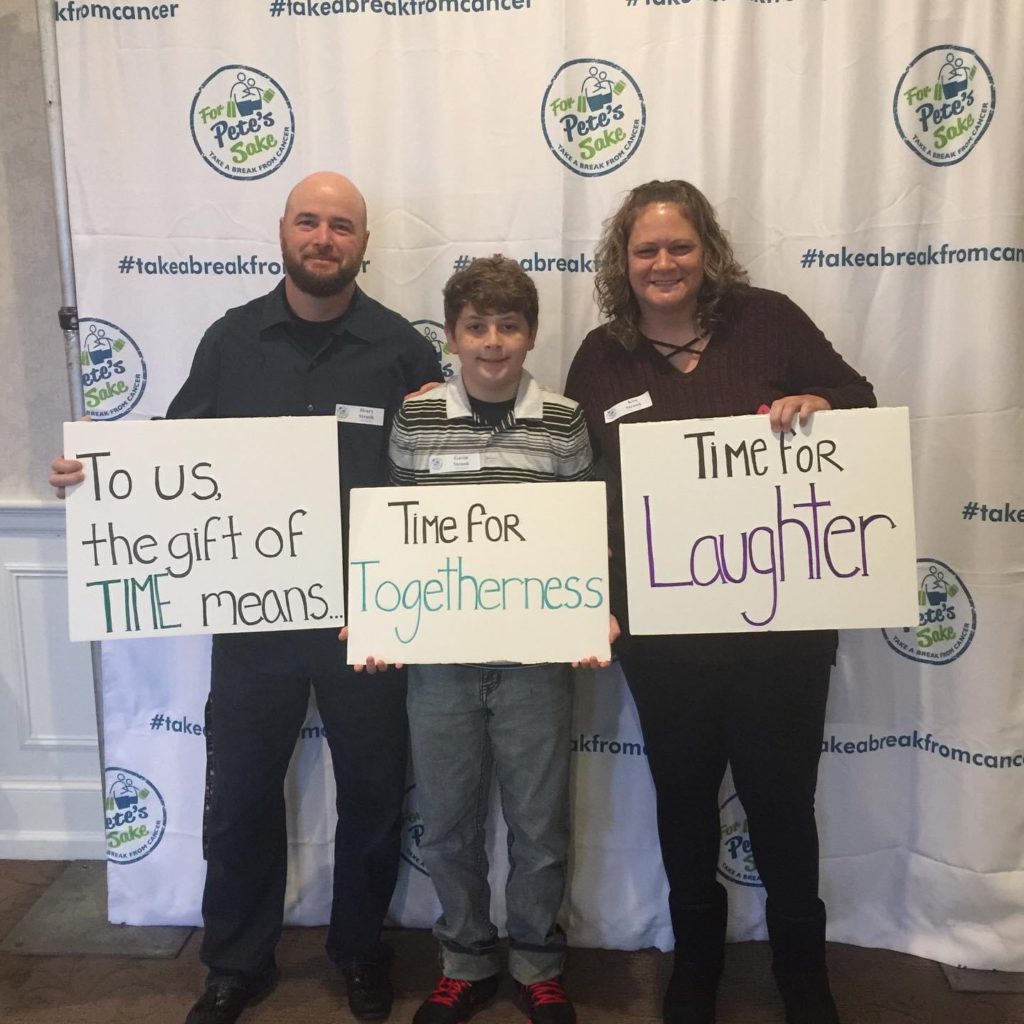
Finding help and support from outside groups
My cancer doctor, Dr. Rabachowski, knew that I had just lost my mother. He saw what I was going through during treatment, and I just wasn’t handling things very well, dealing with a lot as a family at that time.
He said there’s a group called “For Pete’s Sake” that gives families some respite, a vacation to get away for a while to just enjoy being a family again.
The trip would help get to a little bit of normalcy to just spend time together and forget about the cancer just for a little while. They sent us to Disney World.
I cannot thank them enough ever. There are not enough things that I could give them. I love them.
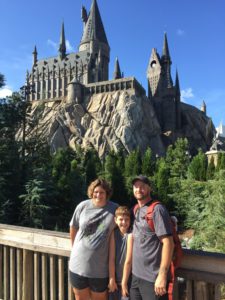
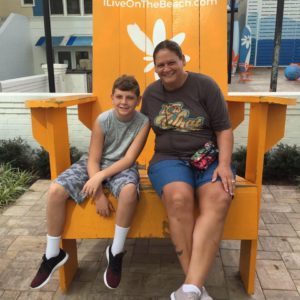
The people of the organization are just awesome people. They helped so many families. They’re so good, and they’re just there. If you ever need to talk, they’re there for you. They’re just awesome people.
At the time, it was so nice to just come here, have fun, laugh and not think of what’s going to happen next week getting back to treatments.
Then there’s also “Lisa’s Army,” a group that makes care packages for cancer patients. I got a package from them. It had all kinds of things in there. They’re also a good organization.
These were 2 organizations that were very good to me and my family, and like I said, I can never thank them enough.
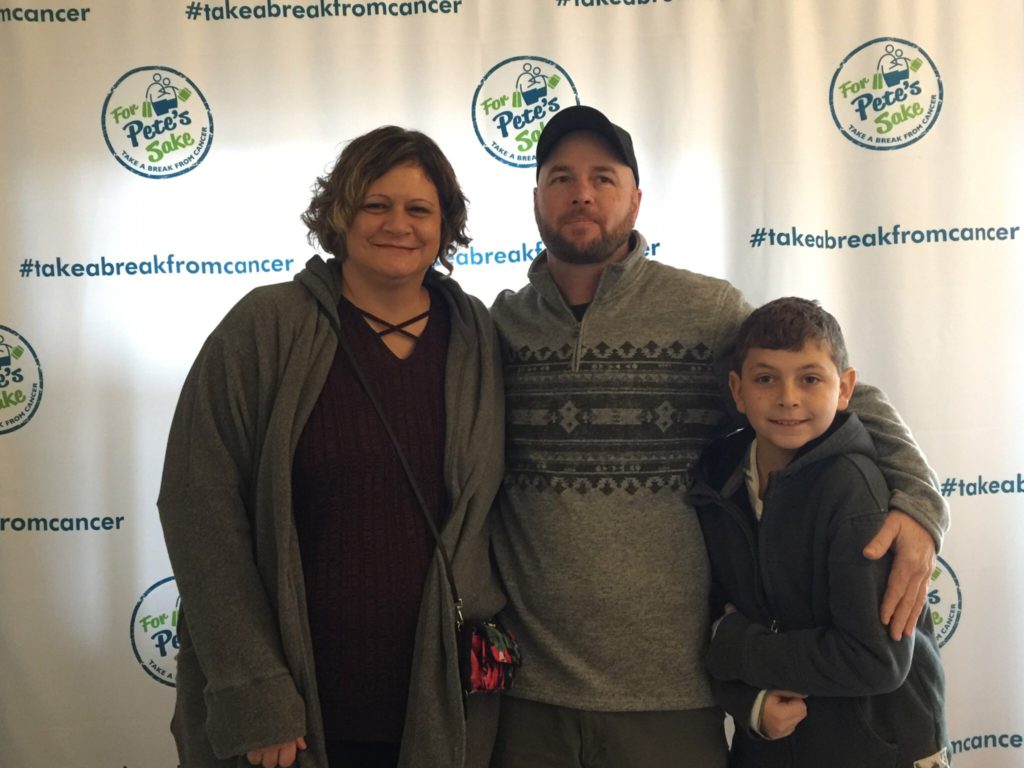
I just want to thank them for helping me and my family at the time we were going through so much. It just meant so much what they did for us.
I always have love for them in my heart. To know somebody cares that much and has never met you means so much.
Last message for other patients and caregivers
The only thing I would say is no matter what, just keep your head up and keep pushing forward.
Surround yourself with positive people and people that will support you and that love you, but always keep pushing forward, always, and with a smile.

Inspired by Kim's story?
Share your story, too!
Follicular Lymphoma Stories
Laura C., Follicular Lymphoma, Stage 4 (Metastatic), Grade 1 to 2; Papillary Thyroid Carcinoma
Symptoms:Incidental finding after hysterectomy (follicular lymphoma), thyroid nodule detected on imaging (papillary thyroid carcinoma)
Treatments: Immunotherapy (rituximab and lenalidomide or R² regimen), surgery (thyroidectomy)
Hayley H., Follicular Lymphoma, Stage 3B
Symptoms: Intermittent feeling of pressure above clavicle, appearance of lumps on the neck, mild wheeze when breathing and seated in a certain position
Treatments: Surgery, chemotherapy
Laurie A., Follicular Lymphoma, Stage 4 (Metastatic)
Symptoms: Frequent sinus infections, dry right eye, fatigue, lump in abdomen
Treatments: Chemotherapy, targeted therapy, radioimmunotherapy
Courtney L., Follicular Lymphoma, Stage 3B
Symptoms: Intermittent back pain, sinus issues, hearing loss, swollen lymph node in neck, difficulty breathing
Treatment: Chemotherapy

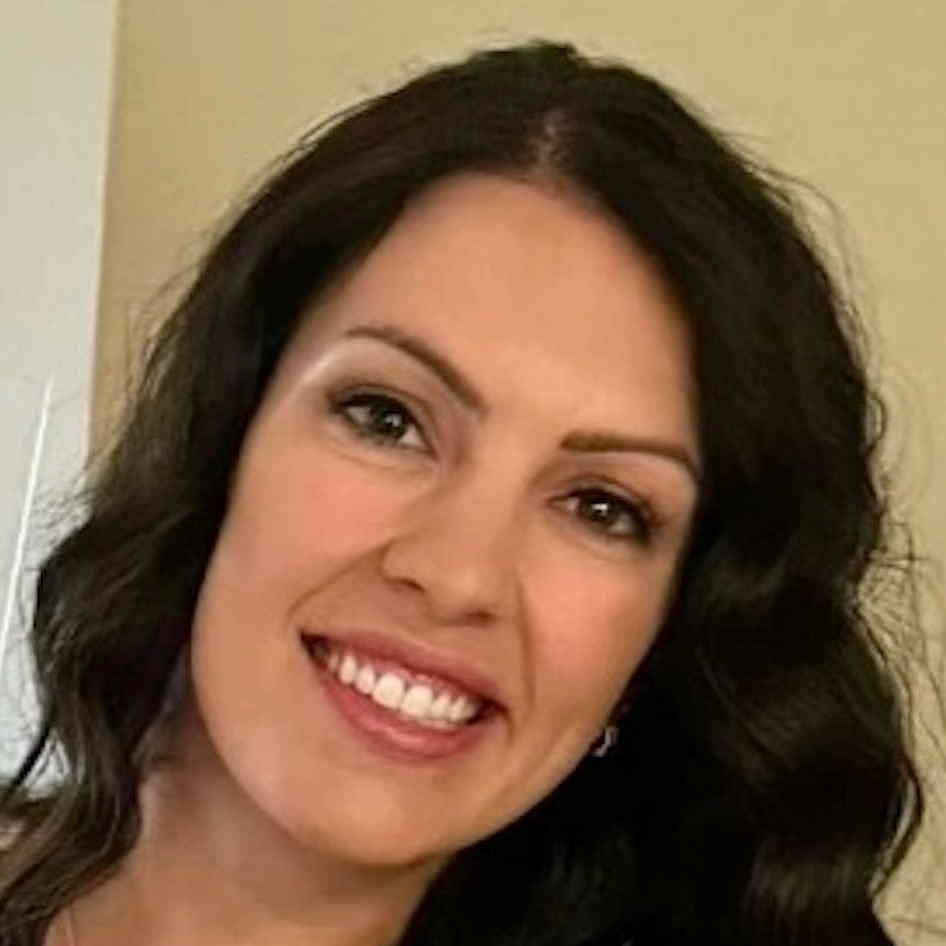
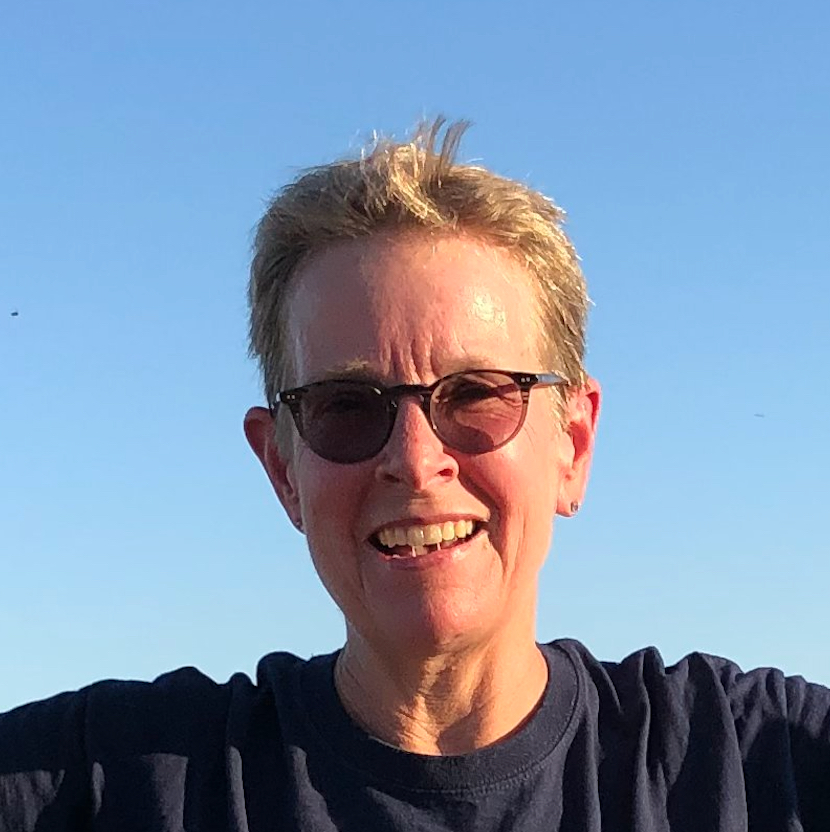

4 replies on “Kim’s Stage 4 Follicular Lymphoma Story”
Happy for you Kim, being cancer free! 👏. The dedicated support you received from your husband and son during your cancer journey was a wonderful blessing! The three of you were such troopers, and a true testament to what a loving family is about.
My Non-Hodgkin’s Follicular stage 4 Lymphoma is being in remission for over 15 years! No relapse what so ever!
So keep hopeful and positive always, knowing that this type of Non-Hodgkin’s Lymphoma is absolutely treatable. I am a real proof of it!😊
All my best to you and your family!💕💕💕
Viviane
WELL DONE KIM, YOU ARE CERTAINLY A SURVIVOR, AND YOUR STORY IS ENCOURAGING I HOPE THAT THINGS GET BETTER AND BETTER AS TIME GOES ON. ONCE CANCER IS DIAGNOSED IS SEEMS THE WORD NEVER DISAPPEARS SO BEING POSITIVE IS A MUST. BEST WISHES TO YOU AND YOUR FAMILY.
Thank you Kim, your story is so inspiring. Such a lovely lady with a fantastic family. I wish you all the best for the future
Thanks for sharing. I was just diagnosed with Stage 4 Follicular BC NHL, and seeing your story as the first one I read, with you at the same age, similar location etc gave me hope.